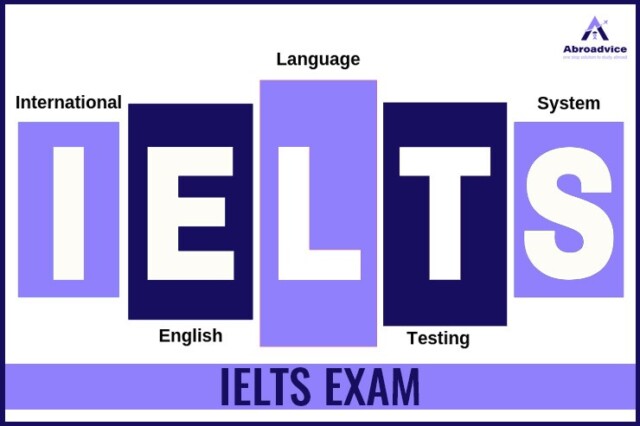If you are already preparing for higher education, you are no stranger to IELTS. Most Western countries, like the UK and the US, offer excellent opportunities for higher education. This is why, each year, millions of students try to move to these countries to pursue their dreams. However, the journey is full of obstacles. For example, most students make the mistake of starting the subjects straightaway. They try to finish the chapters quickly but face unforeseen challenges. They don’t have a clear idea about the IELTS syllabus, which renders most of their efforts meaningless. So, it is extremely important to know the syllabus before starting even a single chapter of the IELTS subjects.
Understanding the IELTS syllabus is crucial for anyone preparing for the exam. IELTS is widely recognized as a standardized mode for testing English proficiency for non-native English speakers. This test assesses the abilities of the candidate by testing them on various parameters like –
- Listening
- Reading
- Writing
- Speaking
Many students often complain that they don’t know the means to get the IELTS syllabus. The best way to check it is always the official IELTS website. However, if you feel that is a hassle, you can simply hire AbroAdvice.com and know the syllabus for the IELTS exam. On this note, we will discuss in detail how importance it is to understand the IELTS syllabus.
Helps to Tailor Strategies
When students have a clear understanding of the IELTS syllabus, it enables them to tailor their strategies accordingly. This exam is designed to evaluate the language skills of a candidate. IELTS tests them on various parameters. Each IELTS module has distinct features. When students have a clear idea about the syllabus, they can familiarise themselves easily. Students can break down the syllabus in detail and allocate their time and effort effectively. They can identify areas where they are struggling and focus on only where they need improvement.
Familiarity with Test Format
The IELTS syllabus includes all the details about the four main sections of the test, namely –
- Listening
- Reading
- Writing
- Speaking.
Each of these sections has specific functions. All these sections also have different types of questions aiming to test the different skills of the candidate. So, they must be familiar with each of these sections to perform well. For example, the Listening module involves various audio recordings such as conversations, monologues, and discussions. By understanding this aspect of the syllabus, students can plan well in advance how to tackle this section. Candidates can practice for this section by listening to different accents and identifying key information.
Improves Comprehension Skills
As we already said, each section of the IELTS exam serves different functions. The reading module, for example, assesses one’s ability to comprehend written texts. Students can be asked to read various pieces, ranging from articles and reports to academic texts. If one is fully aware of the IELTS syllabus, they can prepare themselves for such challenges. By knowing the types of passages and questions that appear in this section, candidates can develop effective reading strategies beforehand. There are various techniques like skimming and scanning that they can learn from their seniors or online experts. By implementing these challenges, students learn to locate information quickly. This is a skill that is crucial for managing time during an exam like IELTS.
Improves Writing Speed and Accuracy
The Writing module typically includes two tasks –
Task 1
In this section, students are asked to describe visual information
Task 2
In this section, students are asked to write an essay on a given question.
Understanding the specific requirements of each task is essential for effective preparation. For example, in the first task, students may be required to compare presented data in a chart, graph, or diagram. When the candidates know this in advance, they can practice accordingly. There are several online modules where students can hone their visual interpreting skills. They can also work on their organizational skills by using such modules.
In addition, Task 2 of the writing module assesses the ability of the candidates to present a coherent essay on a given topic. If the students are familiar with the types of essay questions, they can prepare themselves beforehand. Creating a coherent argument structure requires logical analysis of data. Since IELTS is bound by time, students don’t always get the time to arrange all the arguments in proper sequences before writing. With prior familiarity with the syllabus, students can spend less time wondering. This helps them to meet the necessary criteria for assessments. They can also easily meet the expectations of the examiners with clarity about the syllabus.
Similarly, the speaking module evaluates the oral communication skills of the students. Students are tested over a face-to-face interview with an examiner. If students have a full understanding of the structure of the speaking test, things become easier to tackle.
For example, this part includes three parts –
- Introduction and Interview
- Long Turn
- Discussion
These three parts together assess the communication skills of the candidates. With the syllabus fully clear, students can prepare effectively. They can practice responding to a range of questions, expressing their opinions, and engaging in discussions on various topics.
Helps with Calculating Scores
IELTS tests are not similar to the tests you are familiar with. Instead of a flat scoring criterion, candidates are evaluated across all four vectors. So, it is important to understand the scoring criteria for each module. You need to score a minimum score in each section to score your desired final score.
If you don’t have a clear idea of how this scoring happens, you cannot plan the test. There are instances where students are often forced to leave questions to accommodate other questions. So, you should have a clear idea of how many questions you can afford to omit from each section.
The IELTS scoring system assesses proficiency on a scale from Band 1 to Band 9, with Band 9 representing expert proficiency. Knowing how each section is scored allows candidates to identify their strengths and weaknesses. For instance, if a candidate consistently performs well in the Reading and Listening sections but struggles with Writing, they can prioritize improving their writing skills during their preparation.
Improves Time Management Skills
Students also must remain aware of the timing constraints at all times. There is a specific time limit for attempting in each section. So, knowing the syllabus is crucial for effective exam management. The IELTS test is designed to assess not only language proficiency but also the ability to perform tasks under time pressure. Understanding the time allocated for each section helps candidates practice time management strategies, ensuring that they can complete all tasks within the stipulated time.
Broadens the Vocabulary
Moreover, the IELTS syllabus often provides information about the types of topics that may be covered in the test. This knowledge allows candidates to broaden their vocabulary and familiarise themselves with common themes. For example, the Speaking module may include questions about personal experiences, education, work, and social issues. By anticipating these topics, candidates can prepare relevant vocabulary and examples to use during the test.
Good vocabulary skills also prove to be crucial for life after IELTS. You may need to write SOPs or personal essays while applying to your desired college. Instead of hiring SOP and LOR writing services, you can use this skill to write one yourself. So, we have proved how important it is to understand the IELTS syllabus for preparation and success in the IELTS exam. It provides candidates with insights into the format, question types, and assessment criteria for each module. Armed with this knowledge, candidates can develop targeted strategies, practice efficiently, and approach the test with confidence. The IELTS syllabus serves as a roadmap for candidates, guiding them through the various aspects of the test and ultimately helping them achieve their desired scores. So, before you open the pages of the textbook, ensure you know your syllabus clearly.





